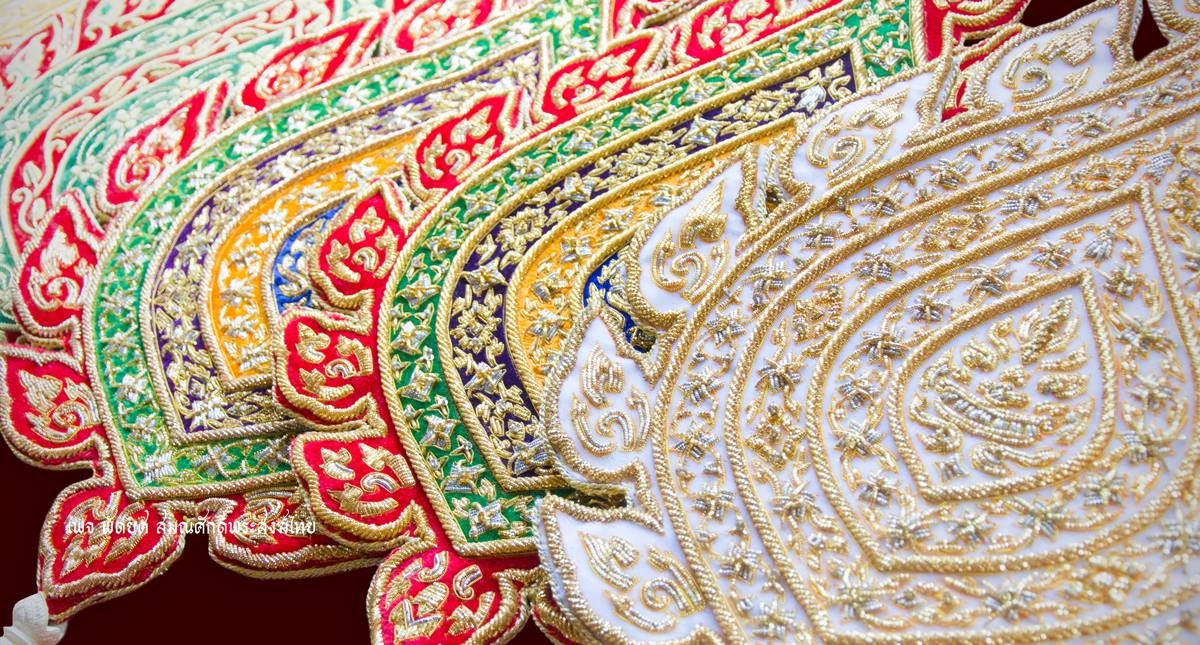
Honorific Ranks: Advantages and Disadvantages
ศาสตราจารย์ ดร. วัชระ งามจิตรเจริญ
Prof. Dr. Watchara Ngamchitcharoen
บทคัดย่อ
โครงการวิจัยเรื่อง “สมณศักดิ์ : ข้อดีและปัญหา” มีวัตถุประสงค์ เพื่อศึกษาข้อดีและปัญหาของสมณศักดิ์ รวมทั้งแนวคิดและแนวทางการปฏิบัติในเรื่องสมณศักดิ์
จากการศึกษาพบว่า สมณศักดิ์ โดยตัวมันเองเป็นสิ่งดีงามเพราะเป็นการยกย่องและให้กําลังใจแก่พระสงฆ์ผู้ปฏิบัติดีปฏิบัติชอบหรือมีคุณงามความดีต่อพระศาสนาหรือประเทศชาติแต่เป็นธรรมดาที่สิ่งต่าง ๆ มักจะมีทั้งด้านบวก ด้านลบ หรือข้อดีและข้อเสีย และสามารถมองต่างกันได้ จึงมักเกิดปัญหาในปรากฏการณ์ต่าง ๆ ของสังคม สมณศักดิ์ก็เช่นเดียวกันก็มีทั้งข้อดีและปัญหาที่เกิดจากผู้ที่เข้าไปเกี่ยวข้องและผู้ที่มองเรื่องสมณศักดิ์ด้วยมุมมองที่ต่างกันไป แม้จะไม่อาจยืนยัน หรือพิสูจน์ให้เห็นได้อย่างเด็ดขาด แต่ก็มีเหตุผลพอที่จะสรุปว่า อย่างน้อยสมณศักดิ์มีข้อดีไม่น้อยไปกว่าข้อเสีย และยังสามารถปรับปรุงแก้ไขได้ ปัญหาที่เกิดยังไม่รุนแรงเสียหายถึงขนาดควรยกเลิกสมณศักดิ์ อีกทั้งในความเป็นจริงการยกเลิกสมณศักดิ์เป็นเรื่องที่เป็นไปได้ยากเพราะสมณศักดิ์ผูกโยงอยู่กับระบบการปกครองคณะสงฆ์ รวมทั้งระบบการปกครองบ้านเมืองอีกทั้งยังเป็นส่วนหนึ่งของประเพณีวัฒนธรรมไทยและเกี่ยวข้องกับสถาบันพระมหากษัตริย์
สมณศักดิ์ จึงควรได้รับการปรับปรุงแก้ไขมากกว่าการยกเลิก ซึ่งวิธีการปรับปรุงที่สําคัญและมีความเป็นไปได้คือการปรับปรุงวิธีการพิจารณาสมณศักดิ์ โดยให้พระสงฆ์และคฤหัสถ์มาร่วมกันคัดเลือกเพื่อป้องกันการวิ่งเต้นหรือเล่นพวก การปรับปรุงเกณฑ์เรื่องคุณสมบัติของผู้ควรได้รับสมณศักดิ์ให้กว้างและเป็นธรรมมากขึ้นเปิดโอกาสให้พระสงฆ์ที่มีผลงานด้านอื่น ๆ เช่น การศึกษา ได้รับสมณศักดิ์ด้วย แม้ไม่มีตําแหน่งบริหาร ไม่ควรผูกโยงกับตำแหน่งบริหารเป็นหลักอย่างที่เป็นอยู่ การปลูกฝังอบรมสร้างค่านิยมที่เหมาะสม และการควบคุมตรวจสอบพฤติกรรมและการทํางานของพระสงฆ์ที่ได้รับสมณศักดิ์
ในสภาพการณ์ปัจจุบันที่เรายังไม่ได้ดําเนินการปรับปรุงแก้ไขระบบสมณศักดิ์ พระสงฆ์ รัฐ และประชาชนก็ควรปฏิบัติตนต่อเรื่องสมณศักดิ์ให้เหมาะสมมากขึ้นเพื่อปูทางไปสู่การปรับปรุงระบบสมณศักดิ์ในระยะยาว เช่น พระสงฆ์ต้องเข้าใจเจตนารมณ์ของสมณศักดิ์ให้ถูกต้อง ไม่ลุ่มหลง มัวเมาในสมณศักดิ์ ชาวบ้านก็ควรส่งเสริมพระสงฆ์ไม่ให้เกิดการยึดติดอยากได้สมณศักดิ์ ควรช่วยเตือนสติและช่วยกันลดค่านิยมฟุ้งเฟ้อ ฟุ่มเฟือย และการเผยแพร่ความรู้ในเรื่องสมณศักดิ์ให้พระสงฆ์และชาวบ้านเข้าใจเรื่องสมณศักดิ์ อย่างถูกต้องจะช่วยลดปัญหาของสมณศักดิ์ได้
Abstract
This research is aimed to study advantages and disadvantages of Thai Buddhist monks’ honorific ranks, and to arrive at the ideas and the guidelines on practices toward them.
From the study, it is found that honorific ranks are themselves good because they are glorification and encouragement to the monks who perform good things toward Buddhism or the country. However, it is normal for all social phenomena to be of both negative and positive sides or advantages and disadvantages and also to be conceived or considered in different or even contradictory perspectives. That is true for honorific ranks as well; their advantages and disadvantages come from the people concerned and the critics who have different perspectives toward them. At any rate, even though it cannot be absolutely affirmed or proved, it is reasonable enough to conclude that at least honorific ranks have advantages not fewer than disadvantages, and can be rectified or improved, i.e. their disadvantages are not so serious that they should be eliminated, and that they are, in fact, difficult to be eliminated or abrogated since they are related to the administrative system of Saṅgha as well as that of the state, and also part of the Thai tradition and culture, and the royal institution.
Honorific ranks are, therefore, should be rectified or improved rather than eliminated, and the important and possible methods for their rectification or improvement are an amendment of the process of screening and selecting the monks for the honorific ranks by using cooperation of both monks and lay people so as to prevent monks from rushing around and favouritism, change of the criteria of the qualifications for honorific ranks to be broader and more fair, giving the chance to the monks who have good performance in other fields like education though they possess no administrative ranks, i.e. the administrative ranks ought not to be the main or necessary qualification as usual, training monks to possess suitable values, and systematic control and check of behaviour and working of the monks with honorific ranks.
In current situation in which the improvement of the system of honorific ranks hasn’t yet been carried out, monks, the state, and people should practice in the more suitable way toward honorific ranks in order to pave the way to their improvement in the long run. Monks, for example, are supposed to understand the correct purpose of honorific ranks, and not to be obsessed with them; lay people ought to encourage monks not to be enamoured with them, help caution the monks, and reduce their extravagant values; and dissemination of knowledge on honorific ranks to make monks and lay people rightly understand them can reduce their disadvantages.